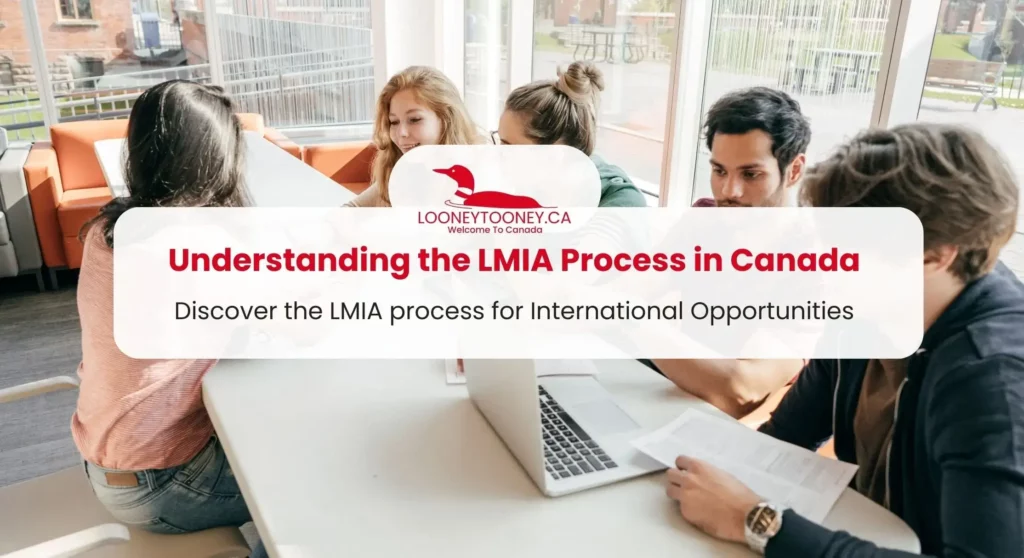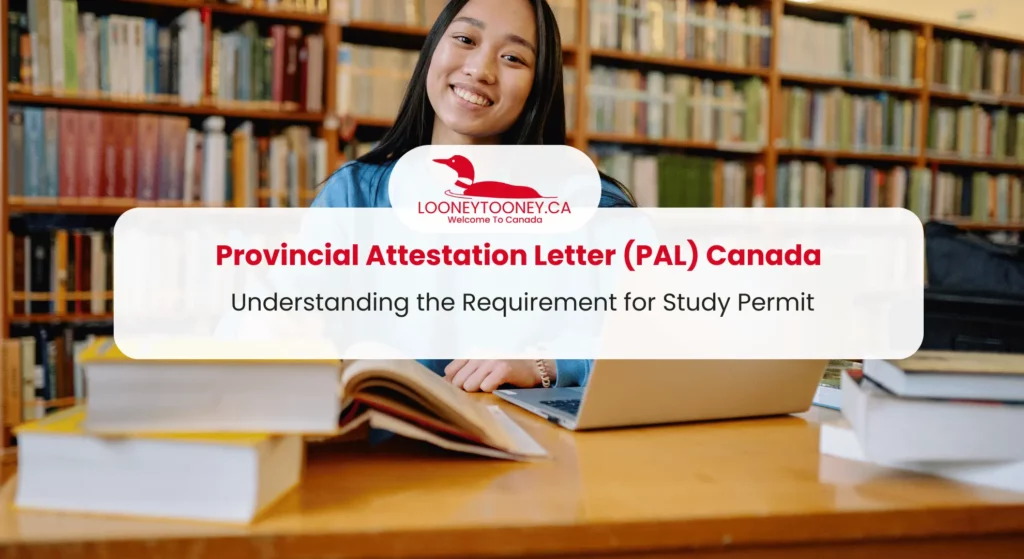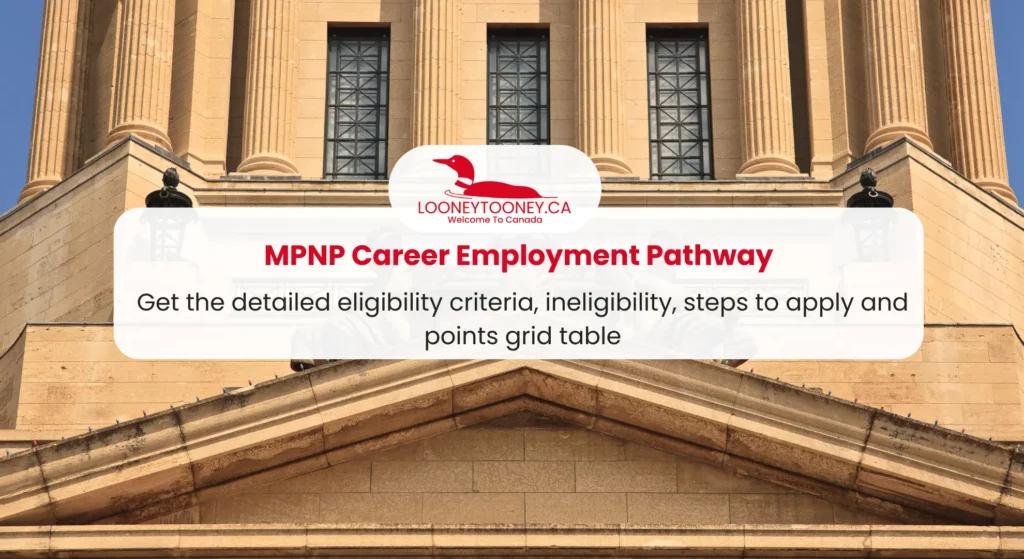Working in Canada comes with its unique set of rules and documents, one of which is the Labour Market Impact Assessment (LMIA). For Canadian employers, the LMIA serves as a crucial prerequisite before hiring foreign workers. It’s a document provided by Employment and Social Development Canada that indicates the need for a foreign individual to fill a specific job because a suitable candidate couldn’t be found within Canada.
In this article, we will guide you through the essentials of LMIA in a simple manner. You will gain insights into who needs it, how to obtain it, and what happens after it’s approved. We will even explore methods to speed up the process. So, whether you are an employer seeking international talent to grow your team or a worker dreaming of a new chapter in Canada, join us as we uncover the details of the LMIA process.
Table of Contents
- What is a Labour Market Impact Assessment (LMIA)?
- When do Labour Market Impact Assessments Expire?
- Who needs a Labour Market Impact Assessment?
- LMIA Exemption Codes
- Securing Canadian CRS Points: Valid Job Offer & LMIA Requirements
- Regulatory Authorization to Work without a Work Permit
- How to get an LMIA?
- What happens after LMIA is Approved?
- FAQs on Labour Market Impact Assessment
What is a Labour Market Impact Assessment (LMIA)?
A Labour Market Impact Assessment (LMIA) is a crucial document Canadian employers require before engaging a foreign worker. This document is provided by Employment and Social Development Canada (ESDC) which evaluates the effect of employing a foreign individual in Canada. When the LMIA is positive, it signifies the unavailability of a Canadian citizen or permanent resident for a job, allowing the employer to hire a foreign national. At times, a positive LMIA is also called a confirmation letter. Conversely, a negative LMIA suggests that a Canadian citizen or permanent resident should fill the position.
Employers seeking to hire a foreign worker must initiate the Labour Market Impact Assessment application process. Following the acquisition of the LMIA, the worker can proceed to apply for a work permit. To obtain a work permit, the worker need:
- A job offer letter
- A contract
- A copy of the LMIA
- The LMIA number
When do Labour Market Impact Assessments Expire?
Until April 30, 2024, LMIA remains valid for up to 12 months from the date of issuance. Starting May 1, 2024, an LMIA will be valid for up to 6 months from the date of issuance.
The expiration date of an LMIA signifies the timeframe within which:
- Employers are required to inform the temporary foreign worker of the LMIA’s approval.
- Employers must send the positive LMIA letter to the temporary foreign worker.
- Temporary foreign workers need to initiate the application process for a work permit at Immigration, Refugees and Citizenship Canada (IRCC).
- Employers who have not included the names of temporary foreign workers in their LMIA applications must continue to try to recruit Canadians and permanent residents until they select a temporary foreign worker.
Failure to complete the aforementioned steps within the validity period makes the LMIA invalid, requiring employers to submit a new LMIA application to hire a temporary foreign worker.
Who needs a Labour Market Impact Assessment?
Certain employers hiring temporary workers must obtain a Labour Market Impact Assessment before the worker can apply for a work permit. This section covers essential details about the LMIA, necessary for certain employers looking to hire temporary workers from outside Canada. It also includes valuable information for individuals seeking job opportunities in Canada, guiding both employers and workers through the LMIA process.
For Employers
Before hiring someone from another country for a temporary job, most employers need to get an LMIA. Check if you need an LMIA before you start hiring.
An LMIA validates two key aspects:
- Requirement for a temporary foreign worker.
- Unavailability of Canadians or permanent residents for the job.
To determine if you and the temporary foreign worker you wish to hire are exempt from needing an LMIA or work permit, take one of the following actions:
- Check the LMIA exemption codes and work permit exemptions (given below).
- Choose the LMIA exemption or work permit code that best fits your hiring scenario and read the detailed description.
- If an exemption code applies to you, ensure to include it in your job offer. (OR)
- If you are hiring a temporary foreign worker who is currently outside Canada, you can contact the International Mobility Workers Unit. This also applies even if the worker is from a country whose nationals are exempt from needing a visa.
For Workers
Generally, most individuals require a work permit to work in Canada. If you find that you need a work permit, you might be eligible for either:
- An employer-specific work permit, or
- An open work permit.
To gain clarity on:
- Whether you need a work permit.
- Identifying the right kind of work permit for your circumstances.
- Any specific instructions needed for the application process.
You can utilize this tool to guide you through the process.
LMIA Exemption Codes
Under various legislative sections, distinct LMIA exemption codes are assigned to cater to different scenarios. These codes serve to exempt individuals from the requirement of a Labor Market Impact Assessment for certain situations. They are guided by specific rules and policies established by Canadian immigration authorities.
The LMIA exemption codes are listed in the following tables, presenting a breakdown of codes related to different immigration policies and scenarios.
A25.2: Public policies
The following is an overview of the key public policies issued under A25.2, highlighting the different LMIA exemption codes and their respective timelines for implementation.
| Act | LMIA exemption code: December 14 and before | LMIA exemption code: December 15, 2022 and after |
| Public policies issued under the A25.2 (inside Canada) – Guidance for special measures to support Hong Kong residents to come to Canada. – Public policy: Open work permits for applicants under the temporary resident to PR pathway. Expired Temporary public policy: Graphic designers working on live-action television or film in Canada (September 10, 2021 to March 9, 2022). Temporary public policy to facilitate the issuance of an open work permit to former/current post-graduation work permit holders (June 13 to December 31, 2022). | R01 | R01 |
| Public policies issued under the A25.2 (outside Canada) – Guidance for special measures to support Hong Kong residents to come to Canada. | R01 | R02 |
R204: International agreements or arrangements
The following details the LMIA exemption codes under R204(a) and their respective regulations, categorizing and outlining the diverse categories of exemptions for international personnel.
| Regulation | LMIA exemption code: December 15, 2022 and after | LMIA exemption code: December 15, 2022 and after |
| Canada–International Non-Trade Agreements Unique work situations: – Airline personnel (operational, technical, and ground personnel) – United States government personnel | T11 | T11 |
| CUSMA Trader | T21 | T34 |
| CUSMA Investor | T22 | T35 |
| CUSMA Professional | T23 | T36 |
| CUSMA ICT Executive or Senior Manager | T24 | T37 |
| CUSMA ICT Specialized knowledge | T24 | T38 |
| Colombia – Trader | T21 | F10 |
| Colombia – Investor | T22 | F11 |
| Colombia – Professionals or Technicians | T23 | F12 |
| Colombia – ICT Executive or Senior Manager | T24 | F13 |
| Colombia – ICT Management Trainee | T24 | F14 |
| Colombia – ICT Specialized knowledge | T24 | F15 |
| Colombia – Spouse | T25 | T25 |
| Chile – Traders | T21 | F20 |
| Chile – Investors | T22 | F21 |
| Chile – Professionals | T23 | F22 |
| Chile – ICT Executive or Snr Manager | T24 | F23 |
| Chile ICT Specialized knowledge | T24 | F24 |
| Korea, South – Traders | T21 | F30 |
| Korea, South – Investors | T22 | F31 |
| Korea, South – Contract Service Suppliers or Independent Professional | T23 | F32 |
| Korea, South – ICT Executive or Snr Manager | T24 | F33 |
| Korea, South – ICT Management Trainee | T24 | F34 |
| Korea, South – ICT Specialized knowledge | T24 | F35 |
| Korea, South – Spouse | T25 | F36 |
| Panama – Professionals or Technicians | T23 | F42 |
| Peru – Traders | T21 | F50 |
| Peru – Investors | T22 | F51 |
| Peru – Professionals or Technicians | T23 | F52 |
| Peru – ICT Executives or Snr Managers | T24 | F53 |
| Peru – ICT – Management Trainees | T24 | F54 |
| Peru – ICT – Specialized knowledge | T24 | F55 |
| GATS professional | T33 | T33 |
| CETA Investor | T46 | T46 |
| CETA Contractual service supplier | T47 | T47 |
| CETA Engineering technologists and scientific technologists | T48 | T48 |
| CETA Independent professional | T43 | T43 |
| CETA ICT Executives or Senior Manager | T44 | T44 |
| CETA ICT Graduate Trainees | T44 | T42 |
| CETA ICT Specialized knowledge | T44 | T41 |
| CETA Spouse of Intra-corporate transferee (T44, T42 or T41) | T45 | T45 |
| CPTPP Investor | T50 | T50 |
| CPTPP ICT Executive and Senior Manager | T51 | T51 |
| CPTPP ICT Management Trainee | T51 | T54 |
| CPTPP ICT Specialized knowledge | T51 | T55 |
| CPTPP Professional or technician | T52 | T52 |
| CPTPP Spouse | T53 | T53 |
| UK Independent professionals | T43 | F60 |
| UK – ICT – Executives or Snr Managers | T44 | F61 |
| UK – ICT – Management Trainees | T44 | F62 |
| UK – ICT – Specialized knowledge | T44 | F63 |
| UK Spouses of Intra-corporate transferees (F61, F62 or F63) | T45 | F64 |
| UK Investors | T46 | F65 |
| UK Contractual service suppliers | T47 | F66 |
| UK Engineering Technologists and Scientific Technologists | T48 | F67 |
R204(b) Provincial/territorial-international exemption codes
At present, there are no agreements currently approved within the Provincial/Territorial International Exemption Codes under R204(b).
R204(c) Canada-provincial/territorial exemption codes
R204(c) covers LMIA exemptions for Canada’s provincial and territorial nominations, significant investments, and exceptional events (e.g., natural disasters), and includes the Atlantic Immigration Program.
| Regulation | LMIA exemption code: December 15, 2022 and after | LMIA exemption code: December 15, 2022 and after |
| Canada-provincial/territorial – Nominated by a province for permanent residence – Significant Investment Projects – Exceptional or Unforeseen Events (such as natural disasters) | T13 | T13 |
| Atlantic Immigration Program | C18 | C18 |
R205: Canadian interests
R205(a) outlines special work situations and exemptions benefiting Canada. It covers roles like foreign physicians, self-employed business owners, and experts working in unique fields, providing substantial value to Canadian interests.
| Regulation | LMIA exemption code: December 15, 2022 and after | LMIA exemption code: December 15, 2022 and after |
| Significant benefit Unique work situations: – Airline personnel (foreign airline security guards) – Interns with international organizations recognized under the Foreign Missions and International Organizations Act – Rail grinder operators, rail welders or other specialized track maintenance workers – Experts on mission, working for a United Nations office in Canada – Foreign physicians coming to work in Quebec – Caribbean Agricultural Liaison Officers | C10 | C10 |
| Self-employed business owner Unique work situations: – Fishing guides (Canadian lakes) – Foreign camp owner or director, and outfitters – Foreign freelance race jockeys | C11 | C11 |
| Provincial business candidates or Quebec self-employed applicants with a CSQ | C11 | C60 |
| Spouses and dependants at the age of majority of caregivers whose permanent residence application is submitted under the HCCPP or HSWP | C12 | C62 |
| ICT – Specialized knowledge | C12 | C63 |
| ICT – employees starting a branch or affiliate | C12 | C61 |
| Emergency repair or repair personnel for out-of-warranty equipment | C13 | C13 |
| Television and film production workers | C14 | C14 |
| Rural and Northern Immigration Pilot | C15 | C15 |
| Rural and Northern Immigration Pilot spouses | C17 | C17 |
| Francophone mobility | C16 | C16 |
| Live-in caregivers whose permanent residence application is submitted | A71 | A71 |
| Caregivers whose permanent residence application is submitted under the Home Child Care Provider Pilot (HCCPP) or Home Support Worker Pilot (HSWP) (occupation-restricted open work permit) | C90 | C90 |
| Spouses and dependants at age of majority of caregivers whose permanent residence application is submitted under the HCCPP or HSWP | C91 | C91 |
| Bridging open work permits (BOWPs) | A75 | A75 |
| Start-up business class (SUV) permanent resident visa applicants | A75 | A77 |
| Certain Quebec Selection Certificate (CSQ) holders currently in Quebec | A75 | A73 |
| Open work permit pilot for permanent residence applicants in the spouse or common-law partner in Canada (SCLPC) class | A74 | |
| Permanent resident facilitation work permit categories – Caregivers under the HCCPP or HSWP – Yukon Community Pilot (YCP) | A75 | A75 |
| Quebec Selection Certificate (CSQ) holders currently outside Quebec | A76 | A76 |
R205(b) Reciprocal employment exemption codes
R205(b) covers reciprocal employment exemptions, specifically for unique work roles like fishing guides, coaches, and international exchange programs. These exemptions streamline work arrangements between Canada and other nations for individuals in these roles.
| Regulation | LMIA exemption code: December 15, 2022 and after | LMIA exemption code: December 15, 2022 and after |
| Reciprocal employment Unique work situations: – Fishing guides (border lakes) – United States government personnel (family members) | C20 | C20 |
| Residential summer camp counsellors | C20 | C24 |
| Coaches and Athletes | C20 | C26 |
| International Experience Canada Program | C21 | C21 |
| Academic exchanges (professors, visiting lecturers) | C22 | C22 |
| Performing arts | C23 | C23 |
R205(c) Designated by Minister
R205(c)(i) focuses on research-related LMIA exemption codes. It covers roles in research and educational cooperatives at both post-secondary and secondary levels. These exemptions aim to facilitate research and educational opportunities in Canada.
| Regulation | LMIA exemption code: December 14 and before | LMIA exemption code: December 14 and before |
| Research | C31 | C31 |
| Educational co-op – post-secondary | C32 | C32 |
| Educational co-op – secondary level | C33 | C33 |
R205(c)(ii) highlights LMIA exemption codes related to competitiveness and public policy. It covers various categories, including spouses of high-skilled workers, post-graduates, medical residents, and more, with the aim of supporting the competitiveness and public policy goals of Canada.
| Act | LMIA exemption code: December 14 and before | LMIA exemption code: December 15, 2022 and after |
| Spouses or common-law partners of high – skilled workers (TEER 0 through 3) | C41 | C41 |
| Spouses or common-law partners of full-time students | C42 | C42 |
| Post-grad employment | C43 | C43 |
| Post-doctoral Ph.D. fellows | C44 | C44 |
| Medical residents and fellows | C45 | C45 |
| Dependent child of a high-skilled worker (TEER 0 to 3) | C46 | |
| Spouse or common-law partner of a low-skilled worker (TEER 4 or 5) | C47 | |
| Dependent child of a low-skilled worker (TEER 4 or 5) | C48 | |
| Family members of Economic PR applicants | C41 | C49 |
| Academic Award recipients | C44 | C52 |
R205(d) pertains to LMIA exemption codes for charitable and religious work. This category helps people doing religious or charity work by giving them special permission that supports their contributions to these important activities.
| Act | LMIA exemption code: December 14 and before | LMIA exemption code: December 15, 2022 and after |
| Religious work | C50 | C50 |
| Charitable work | C50 | C51 |
R206: No other means of support
R206 deals with situations where people have no other way to get support. It gives exemptions to specific groups like refugee claimants and those facing an unenforceable removal order. This helps them access support when they have no other options.
| Regulation | LMIA exemption code |
| a. Refugee claimants | S61 |
| b. Persons under an unenforceable removal order | S62 |
R207: Permanent residence applicants in Canada
R207 covers LMIA exemption codes for people applying for permanent residence in Canada. It includes various individuals like live-in caregivers, spouses, protected persons, and their family members. These exemptions help these individuals on their journey to become permanent residents.
| Regulation | LMIA exemption code |
| Permanent residence applicants in Canada: – Live-in-caregiver class (LCP) – Spouse or common-law partner in Canada class (after eligibility passed) – Protected persons under subsection A95(2) – Section A25 exemption (humanitarian and compassionate grounds) – Family members of the above | A70 |
R207.1: Vulnerable workers
R207.1 deals with LMIA exemption codes for vulnerable workers and their families. These exemptions aim to support and protect workers who might be at risk in their jobs, ensuring their safety and rights are preserved.
| Regulation | LMIA exemption code |
| 1. Vulnerable workers | A72 |
| 2. Family member of vulnerable worker | A72 |
R208: Humanitarian Reasons
R208 covers LMIA exemption codes for humanitarian reasons. It includes exemptions for destitute students and individuals holding a temporary resident permit for at least six months. These exemptions aim to assist in humanitarian situations and support those facing specific challenges.
| Regulation | LMIA exemption code |
| Destitute students | H81 |
| Holders of a temporary resident permit valid for a minimum of 6 months | H82 |
Securing Canadian CRS Points: Valid Job Offer & LMIA Requirements
Securing additional points within Canada’s Express Entry system through a valid job offer is based on specific criteria. These include:
- 50 Points: Most job offers meeting specific criteria, including full-time employment, one year’s duration, and LMIA in a skilled field.
- 200 Points: Limited to specific senior positions available only for Canadian citizens.
Criteria for Claiming Points
You can claim points for a job offer if:
- Your job is full-time, paid for at least one year, and in a skilled field with an LMIA.
- Your employer has a positive LMIA naming you, or you are already working for the employer on your work permit.
- You have a valid work permit for an LMIA-exempt job and meet certain experience and duration criteria.
Important Considerations
In seeking additional points through a job offer within the Express Entry system, it’s crucial to note the following:
- Necessity of an LMIA or LMIA-Exempt Occupation: Qualifying for these additional points mandates having either a job offer supported by an LMIA or one falling within the LMIA-exempt category.
- Limitations with Open Work Permits: CRS points for a job offer cannot be obtained with an open work permit, such as the PGWP, without the employer providing an LMIA.
Regulatory Authorization to Work without a Work Permit
The section includes a comprehensive list of categories (R186 and public policies) under the International Mobility Program. These include various professions and scenarios where individuals are permitted to work in Canada without needing a separate work permit.
Check general information and essential details about employment under the International Mobility Program without requiring a permit.
- R186(a) – Business visitors
- R186(b) – Foreign representatives
- R186(c) – Family members of foreign representatives
– Locally engaged staff of diplomatic and consular missions and international organizations: Reciprocal employment (LMIA exemption code C20) - R186(d) – Military personnel
– Military personnel and family members - R186(e) – Foreign government officers
- R186(f) – On-campus employment
- R186(g) – Performing artists
– Artistic and performing arts occupations – Authorization to work without a work permit (International Mobility Program) - R186(h) – Athletes and team members
- R186(i) – News reporters, media crews
- R186(j) – Public speakers
- R186(k) – Convention organizers
– Sales - R186(l) – Religious leaders
- R186(m) – Judges, referees, and similar officials
- R186(n) – Examiners and evaluators
- R186(o) – Expert witnesses or investigators
- R186(p) – Short-term students in a foreign healthcare program
– Immigration medical examination: Health care students who are work permit-exempt - R186(q) – Civil aviation inspector
- R186(r) – Aviation accident or incident inspector
- R186(s) – Crew
- R186(t) – Emergency service providers
- R186(u) – Pending decision on work permit renewal
- R186(v) – Off-campus work
- R186(w) – Transition to work permit
- R186(x) – Registered Indians
Public policy authorization to work without a permit
The Public Policy section outlines specific exemptions enabling work in Canada without a permit.
- Public policy: Short-term work permit exemption
- Public policy: 120-day work permit exemption for researchers
Registered Indians
According to paragraph 186(x) of the Immigration and Refugee Protection Regulations, individuals recognized as registered Indians as per the Indian Act are not required to apply for a work permit.
For additional details about confirming registered Indian status, refer to section 10, which covers the examination of individuals registered under the Indian Act at ports of entry, found in ENF 4: Port of entry examinations (PDF, 1.6 MB).
How to get a Labour Market Impact Assessment?
To obtain an LMIA, you need to make a request to Employment and Social Development Canada (ESDC). The process for applying for an LMIA relies on the specific program through which you are planning to hire. Discover how to seek an LMIA to employ:
- High-wage workers
- Low-wage workers
- Workers via the Seasonal Agricultural Worker Program
- Workers via the Agricultural Stream
What happens after Labour Market Impact Assessment is Approved?
Once the LMIA application is reviewed, employers will receive the decision. If it’s a positive LMIA, the employer can move forward and hire a foreign national. But if it’s a negative LMIA, the employer isn’t permitted to hire a foreign national. Positive LMIA decisions are valid for 6 months from the date they are issued. After getting a positive LMIA, the employer needs to inform the foreign national so they can apply for their work permit or permanent residence.
In some cases, employers can request to speed up their LMIA application, aiming for processing within 10 days. To be eligible for this faster process, the employer should be outside Quebec and meet one of these conditions:
- Highest-paying jobs: Salaries within the top 10% of what Canadians earn in that province/territory.
- Skilled Trades: Paid at least the average wage for that position in the province/territory.
- Short-term positions: Jobs lasting 120 days or less.
- Express Entry: LMIA supports an Express Entry candidate.
FAQs on Labour Market Impact Assessment
Following are some of the frequently asked questions and their respective answers related to the Labour Market Impact Assessment:
Q. What is LMIA Canada?
A. An LMIA, or Labour Market Impact Assessment, is a crucial document required by Canadian employers who are planning to hire a foreign worker. A positive LMIA indicates the need for hiring a foreign worker for a specific job. It also shows that there are no Canadian citizens or permanent residents available to fill the position.
Q. Can LMIA lead to PR?
A. Getting a positive LMIA doesn’t mean skilled foreign workers can automatically move to Canada. But if they want to become permanent residents, they have to follow all the rules in the Express Entry immigration process.
Q. Who is eligible for LMIA in Canada?
A. Any employer in Canada seeking to hire a foreign worker can apply for a Labour Market Impact Assessment if they can’t find a Canadian citizen or permanent resident to fill the role. This applies to both small businesses and large corporations.
Q. Can LMIA be rejected?
A. Under Ministerial Instructions, ESDC might reject a Labour Market Impact Assessment application based on specific public policy considerations. These could include low-wage positions above the current cap and in-home caregiver roles with live-in requirements. Or any position if the employer previously had an LMIA revoked within the last 2 years.
Q. How can I get an LMIA work permit?
A. The Canadian employer needs to apply for the LMIA through ESDC to get the LMIA. Upon approval, the foreign worker can then initiate the work permit application. However, simply obtaining an LMIA approval is insufficient to bring a foreign worker to Canada; they must meet all the work permit requirements.
Also, check:
- Canadian Citizenship: A Step-by-Step Guide to Apply
- A Comprehensive Guide on Different Types of Visas in Canada
- A Comprehensive Handbook on Family Sponsorship Program in Canada
- Immigration Programs in Canada
- Intra-Company Transfer
We trust that this information on the “Labour Market Impact Assessment” has provided valuable insights. For further exploration on work permits, visit LooneyTooney.ca. Stay updated with the latest information and insights in this field!





